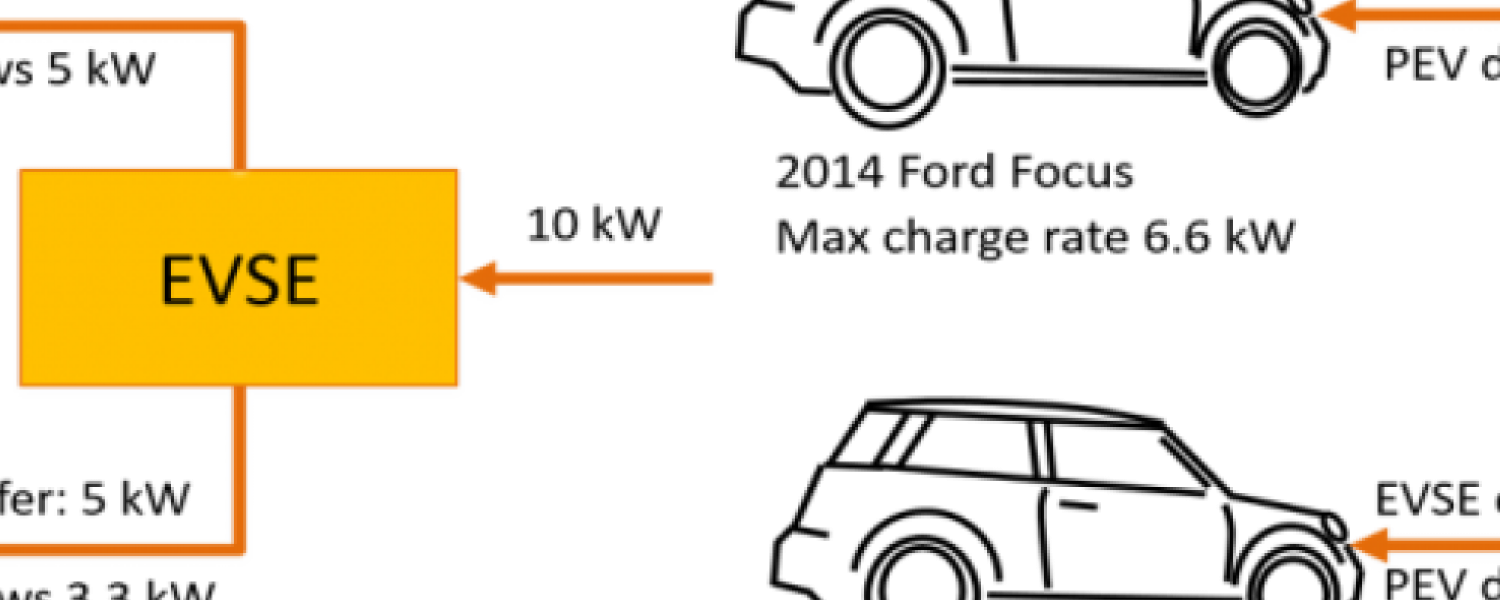
Grid-Integrated Vehicles
University
Course
VZZ
Sponsor
University of Delaware, Electical and Computer Engineering
Goals
We believe that an EVSE may recognize the types of PEVs connected to charge without direct communication, but based on the PEV’s unique implementation of communication protocols, and distinct charge profiles. The goal of this research project are to determine how these implementations manifest themselves in the physical characteristics of communication signals, and in charging profiles in the first few minutes after a PEV connects to and EVSE for charge. We are in a uniquely strong position to perform this research because our university is the center of vehicleâ€toâ€grid technology. Our research group builds and deploys electric vehicle charging stations for our campus and for worldâ€wide v2g technology trials. We also manage a fleet of three dozen electric vehicles operating on our campus. All this infrastructure is readily available to collect perform extensive data collections of actual electric vehicle charging activity.
For collecting data and testing recognition algorithms, we will utilize the University of Delaware V2G project’s extensive network of EVSEs. We will configure several of the EVSEs to perform auxiliary reporting. These reports will be preprocessed via custom programs that we will develop so they may be easily imported into dataâ€mining tools to define an algorithm for recognizing PEVs. Using the results, we will configure several EVSEs to perform recognition. The accuracy of the recognition algorithm will be verified using planned, observed plugâ€in events, and reporting tools such as PlugShare. The algorithm shall be considered sufficiently robust when, for all plug in events, the EVSE recognizes all EVs when the type is in the system, and correctly identifies when an unfamiliar type of EV is connected.
The broader impact of this work is to enable parties managing PEVs (such as a utility or aggregator) to project power demand, avoid faults and circuit overloads, and optimize charging for all vehicles. In addition to publishing this work, we plan to develop openâ€source tools that will enable other researchers to duplicate and expand on our experiments. On a broader scope, the outcomes of this project comprise a resource for those developing smart grids. In particular, the knowledge and tools resulting from our research may be used for greater integration of distributed generation in electric distribution systems, implementation of smart metering, and largeâ€scale load management.
Issues
Identifying electric vehicles based on their unique charging characteristics; developing open source software that can be deployed by all electric vehicle chargers; collecting data and validating results using our university fleet of electric vehicles and charging stations.
Tools and Methods
Electric vehicle
sustainability
electric grid
alternative energy
electronic design
embedded computing
algorithms
Desired Majors
Electrical and Computer Engineering
Computer Science
Prep
EE, CE & Electronic circuit design, testing and evaluation of electric circuits and equipment, design, assembly, installation and operation of electric vehicle charging stations. <br/> CS – Embedded computing; data analysis and algorithm development
Sponsor
University of Delaware, Electical and Computer Engineering